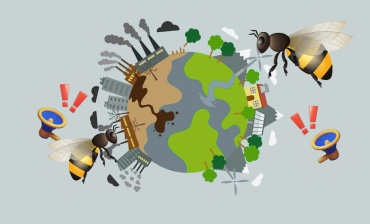The Natural Life and Ecosystems Depend Upon Bees

This article has looked at the amazing skills and value of bees to ecosystems and human existence. We have discussed their physical traits, social organization, means of navigation and communication, methods of foraging and pollination, and threats they encounter.
It is evident that bees are essential to ecosystems because they help pollinate a variety of plants and crops, supporting food production and biodiversity. Their impressive capacity for cooperation and communication within a hive serves as a source of inspiration for studies in areas like robotics and swarm intelligence.
However, there are many threats to bees and their habitats, such as pesticide use, climate change, and habitat loss. With declining bee populations potentially resulting in lower crop yields and detrimental effects on biodiversity, these threats could have serious repercussions on ecosystems and human life.
To protect bees and their habitats, conservation initiatives and additional research are crucial. The use of fewer pesticides, the preservation of habitats, and funding for studies into the biology and behavior of bees are just a few examples of what this entails. Individuals must also take action, such as establishing gardens that are beneficial to bees and helping neighborhood beekeepers.
Therefore, it should be a top priority to conserve and protect bees because they are vital to both human life and ecosystem health. We can contribute to ensuring a healthy and sustainable future for both bees and ourselves by realizing their significance and taking measures to protect them.
Author: Pooyan Ghamari
Swiss Economist with Expertise in Sociology and Technological Advancements
Comments are closed.